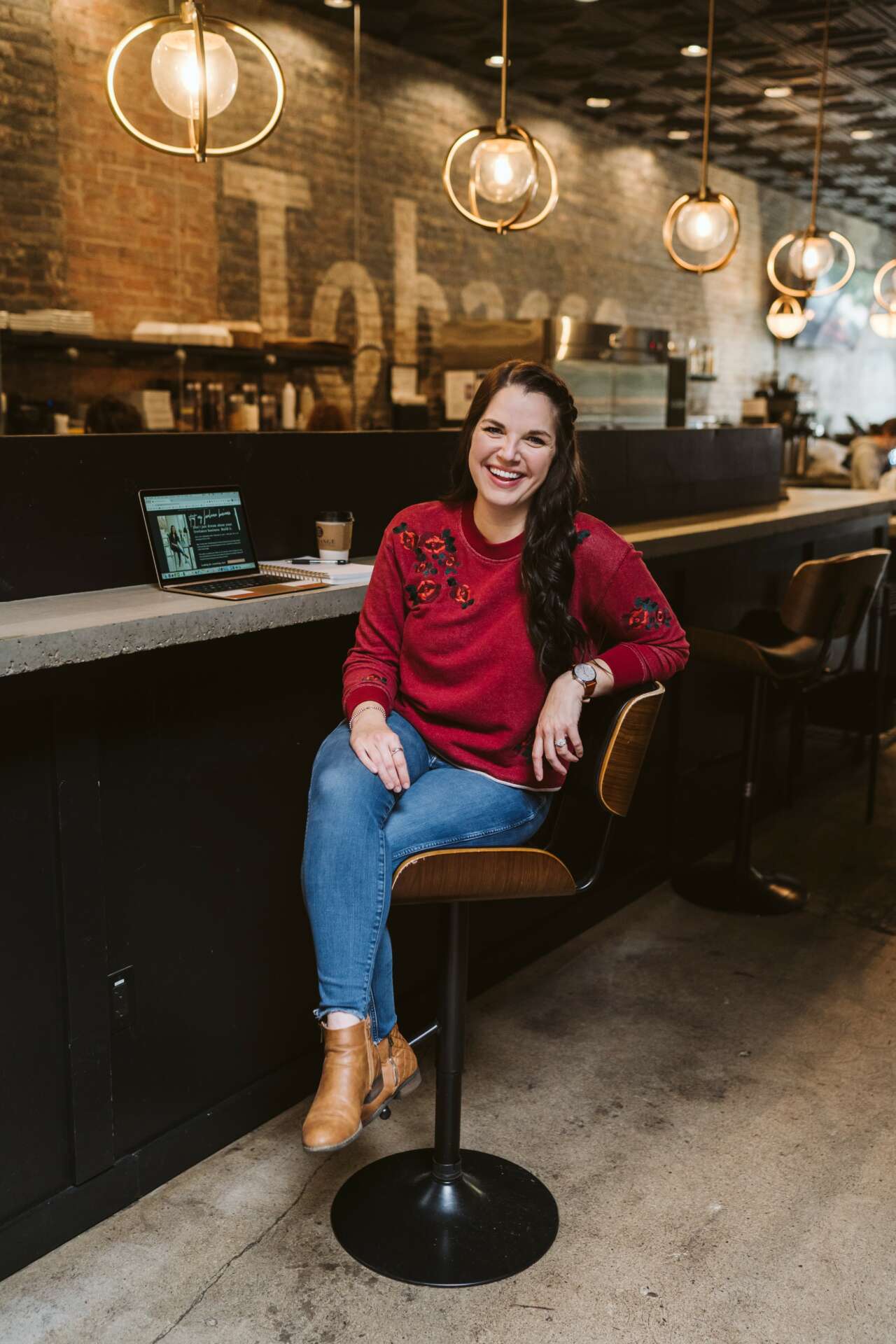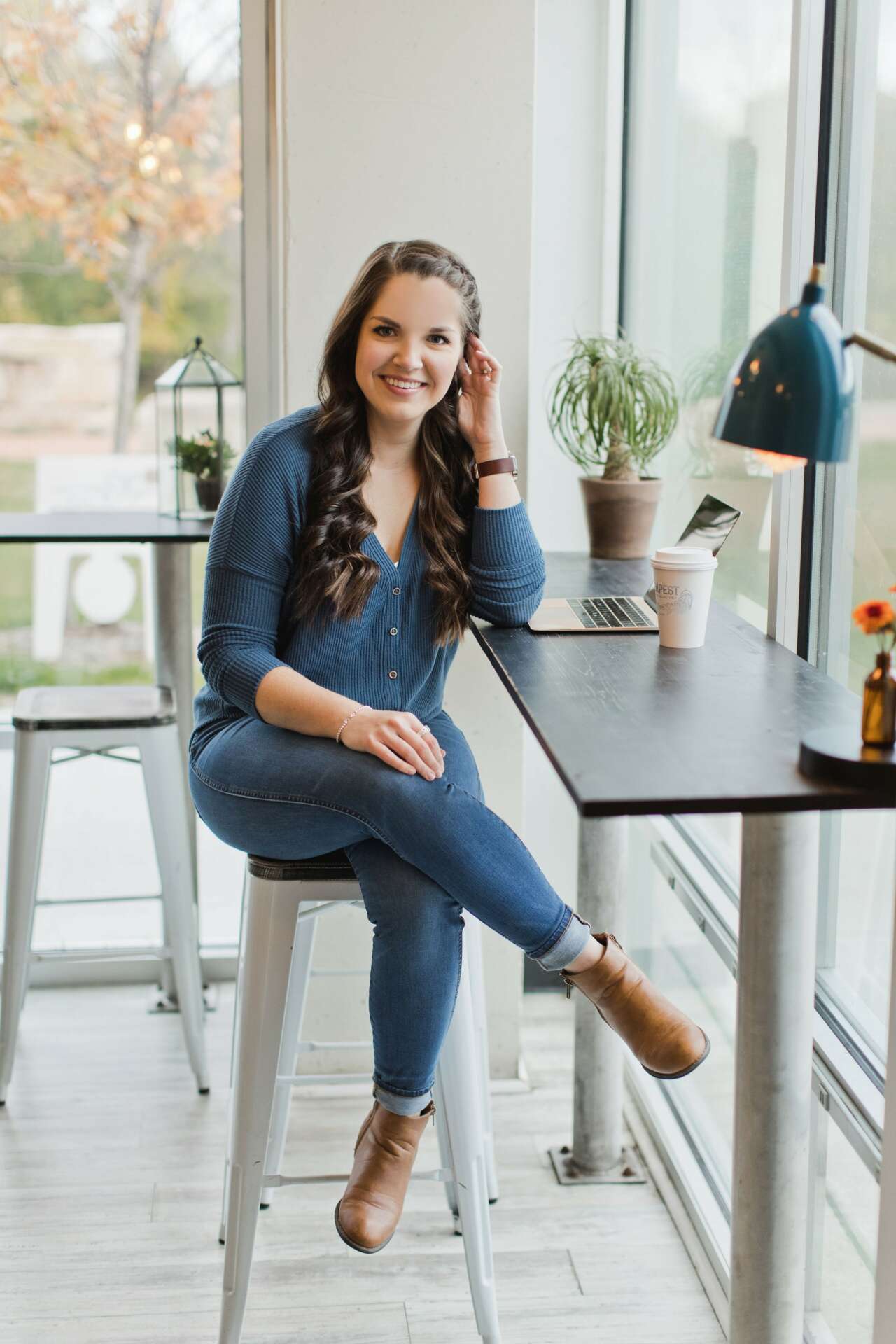We’re excited to introduce you to the always interesting and insightful Kat Boogaard. We hope you’ll enjoy our conversation with Kat below.
Kat, thanks for joining us, excited to have you contributing your stories and insights. What’s something you believe that most people in your industry (or in general) disagree with?
I guess my “hot take” is that growth isn’t your only metric of success. I think in any type of career—but particularly in freelancing and business ownership—there’s this pervasive idea that you’re “failing” if you’re not on the up and up.
Particularly in the context of freelancing, I hear so much about building a brand, creating passive income streams, or spinning up your own agency as the only logical “next steps” for career development.
Personally, I’ve done *all* of those things to some degree. And what I quickly learned was, that while they might’ve been effective ways to increase my revenue or my reach, they actually hindered my own personal feelings of success. In most cases, I felt stressed and spread thin more than anything else.
Success in freelancing doesn’t have to mean growing it into something that’s way bigger than yourself. Success can simply be doing work you’re proud of within a schedule and an environment that’s suitable and sustainable for you. Really, that’s more than enough.

Great, appreciate you sharing that with us. Before we ask you to share more of your insights, can you take a moment to introduce yourself and how you got to where you are today to our readers.
After college, I took a traditional, full-time marketing job. In some ways, my story isn’t all that unique—I got the itch for more flexibility, freedom, creativity, and control. So, back in 2014, I quit my full-time job with the intention of building a career as a freelance writer. I was armed with a whole lot of optimism but no back-up plan to speak of.
Getting started was rough. It took me a solid year or two to feel like I was really making progress.
But since then, I’ve built a solid business and brand as a full-time freelance writer. Today, I focus primarily on writing long-form content (blog posts and ebooks) for software companies in the world of work space. That includes everything from time trackers or project management platforms to accounting software or employee engagement tools.
Over the years, I’ve also built up this “side business” of sorts where I provide advice and resources to fellow freelancers. I do that through an (almost) weekly newsletter, informative blog content, templates and other downloadable resources available for purchase on my site, and relatable social media content (particularly on Twitter, LinkedIn, and Instagram).
As far as my personal life, I live in Wisconsin with my husband, my two boys (a 3-year-old and an 18-month-old), and my two dogs.

Any insights you can share with us about how you built up your social media presence?
I’m by no means a mega influencer (or really, any sort of influencer at all). But, over the years, I’ve built a reasonable following on social media—particularly on Twitter, Instagram, and LinkedIn.
I didn’t totally set out with the intention of building a big audience. Rather, it felt like a great outlet to connect with other freelancers and share some of the challenges I was experiencing as a freelancer in a lighthearted or relatable way.
I’ve learned a lot about what works and what doesn’t (and obviously, those could differ for everyone). Some of my biggest tips or lessons are:
1. Pick a focus area. All of my posts are almost exclusively about freelancing. Whether it’s something eye-roll-worthy I see in a lot of freelance job posts or a sarcastic remark about my tendency to overschedule myself, posting consistently about predictable topics has really helped me build a brand online. I’m known for one thing and not everything. And because of that, I think I’m viewed as a reliable and credible source on that specific topic.
2. Be authentic. You won’t find me using a lot of slick tactics or hooks. I post like I talk and I’m always vulnerable and transparent about what I’m dealing with—like chasing a late payment or feeling stuck on what’s next in my business. Particularly when social media can feel so carefully curated, I think that level of authenticity really resonates with people and has helped me get more traction.

Is there something you think non-creatives will struggle to understand about your journey as a creative?
Maybe this isn’t so much about my journey as a creative but more so about my continuing *career* as a creative. It’s a conversation I have a lot with my husband, who works a traditional 9 to 5 in the hard sciences.
Here’s the gist: There’s a big difference between having the time and the energy to do something.
Creative work takes a lot of brainpower. It’s demanding and downright exhausting at times. Your mental energy and creativity are something to be mindful of when scheduling your work—not just your time.
There are plenty of times when the clock says I have a couple of hours left for work. But my brain is totally tapped out and disagrees. Even if I try to “make the most” of those remaining hours, I’m pretty much incapable of producing any quality work.
I’m probably rambling. But I guess my point is this: a creative career is just as much about energy management as time management.

Contact Info:
- Website: https://katboogaard.com/
- Instagram: https://www.instagram.com/kat_boogaard/?hl=en
- Linkedin: https://www.linkedin.com/in/katboogaard/
- Twitter: https://twitter.com/kat_boogaard
Image Credits
Headshot credit: Scott Eastman All other photos: Danae Herrmann


